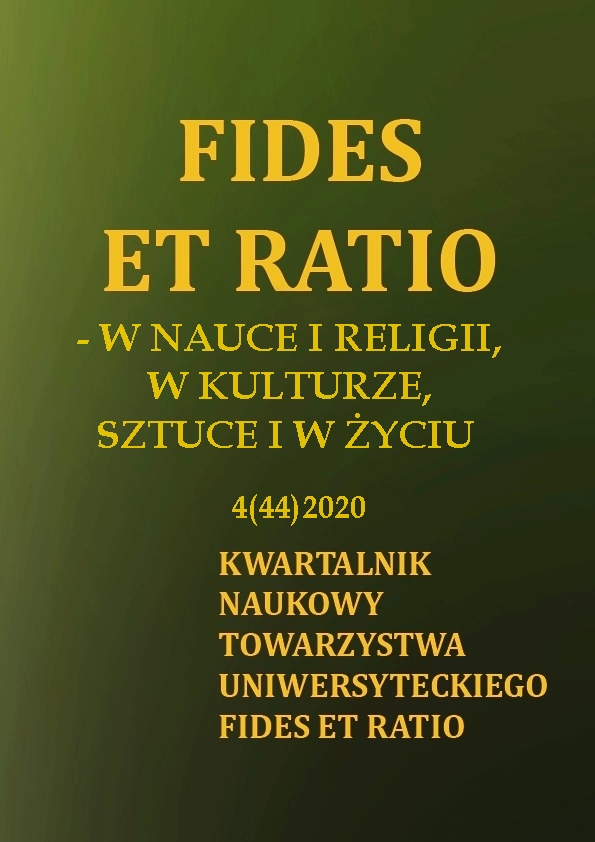Abstract
The presented paper attempts to outline the multidimensional universe of functioning of a person struggling with psychosis. The characteristic difficulties resulting from experiencing productive symptoms such as hallucinations, pseudo-hallucinations, parahallucinations and delusions are described taking into account the intrapsychic, religious, family-related and social aspects. Setting a specific type of psychotic disorders in the contemporary realities, the authors focused not only on the difficulties experienced by the patients, but also on the resources available to them.
References
Agerbo, E., Byrne, M., Eaton, W.W., Mortensen, P.B. (2004). Marital and labor market status in the long run in schizophrenia. Archives of General Psychiatry, 61, 28-33.
Borras, L., Mohr, S., Brandt, P.Y., Gilleron, C., Eytan, A., Huguelet, P. (2007). Religious beliefs in schizophrenia: Their relevance for adherence to treatment. Schizophrenia Bulletin, 33(5), 1238-1246.
Chlewiński, Z. (1982). Psychologia religii. Lublin: Wydawnictwo Towarzystwa Naukowego KUL.
Culliford, L. (2002). Spirituality and clinical care. BMJ, 325, 1434-1435
Górna, K., Jaracz, K., Jaracz, J., Kiejda, J., Grabowska-Fudala, B., Rybakowski, J. (2014). Funkcjonowanie społeczne i jakość życia u chorych na schizofrenię - zależność z remisją objawową i czasem trwania choroby, Psychiatria Polska, 48(2), 227-288.
Grover, S., Davuluri, T., Chakrabarti, S. (2014). Religion, spirituality and schizophrenia: a review, Indian Journal of Psychological Medicine, 36(2), 119-124.
Hafner, H., an der Heiden, W. (1999). The course of schizophrenia in the light of modern follow-up studies: the ABC and WHO studies, European Archives of Psychiatry and Clinical Neuroscience, 249, 14-26.
Kępiński, A. (1992). Schizofrenia. Kraków: Sagittarius.
Koutra, K., Triliva, S., Roumeliotaki, T., Basta, M., Lionis, C., Vgontzas, A.N. (2016). Family Functioning in First-Episode and Chronic Psychosis: The Role of Patient's Symptom Severity and Psychosocial Functioning, Community Mental Health Journal, 52(6), 710-23.
Lukoff, D., Lu, F.G., Turner, R. (1995). Cultural considerations in the assessment and treatment of religious and spiritual problems, Psychiatric Clinics of North America, 18, 467-485.
McGorry, P.D., Killackey, E.,Yung, A. (2008). Early intervention in psychosis: concepts, evidence and future directions, World Psychiatry, 7, 148-156.
Mohr, S., Borras, L., Nolan, J., Gillieron, C., Brandt, P.Y., Eytan, A., Leclerc, C., Perroud, N., Whetten, K., Pieper, C., Koenig, H.G., Huguelet, P. (2012). Spirituality and religion in outpatients with schizophrenia: A multisite comparative study of Switzerland, Canada and the United States, The International Journal of Psychiatry in Medicine, 44(1), 29-52.
Mohr, S., Huguelet, P. (2004). The relationship between schizophrenia and religion and its implication for care. Swiss Medical Weekly, 134(25-26), 369-376.
Nolan, J.A, McEvoy, J.P., Koenig, H.G., Hooten, E.G., Whetten, K., Pieper, C.F. (2012). Religious coping and quality of life among individuals living with schizophrenia. Psychiatric Services, 63, 1051-1054.
Papaleo, F., Lipska, B., Weinberger, D.R. (2012). Mouse models of genetic effects on cognition: relevance to schizophrenia. Neuropharmacology, 62, 1204-1220.
Pargament, K.I., Koenig, H.G., Perez, L. (2000). The many methods of religious coping: Development and initial validation of the RCOPE, Journal of Clinical Psychology, 56, 519–543.
Pargament, K.I., Ano, G.G., Wachholtz, A.B. (2005). The religious dimension of coping. Advances in theory, research and practice. In: R.F. Paloutzian, C.L. Park (eds.), Handbook of the psychology of religion and spirituality, 479-495. New York/London: The Guilford Press.
Seligman, M.E.P., Walker, E.F., Rosenham, D.L. (2017). Psychopatologia. Poznań: Zysk i S-ka.
Świtaj, P., Wciórka, J., Grygiel, P., Smolarska-Świtaj, J., Anczewska, M., Chrostek, A. (2010). Częstość doświadczeń stygmatyzacji chorych na schizofrenię w porównaniu do pacjentów z innymi problemami zdrowotnymi, Postępy Psychiatrii i Neurologii, 19(4), 269-274.
Tomczak, P. (2006). Poszerzone badania nad religijnością pacjentów z rozpoznaniem schizofrenii. Psychiatria Polska, 5, 885-899.
Wandrasz, M. (1998). Religijność a postawa wobec chorób. Lublin: Red. Wydawnictw KUL.
Wciórka, J. (2017). Schizofrenia, zaburzenia schizotypowe i schizoafektywne. In: Pużyński, S., Rybakowski, J., Wciórka J. (eds.), Psychiatria, t. 2. Wrocław: Wydawnictwo Medyczne Urban & Partner.
Załuska, M. (2000). Funkcjonowanie społeczne i zapotrzebowanie na opiekę środowiskową w schizofrenii. Rozprawa habilitacyjna, Warszawa: Instytut Psychiatrii i Neurologii.

